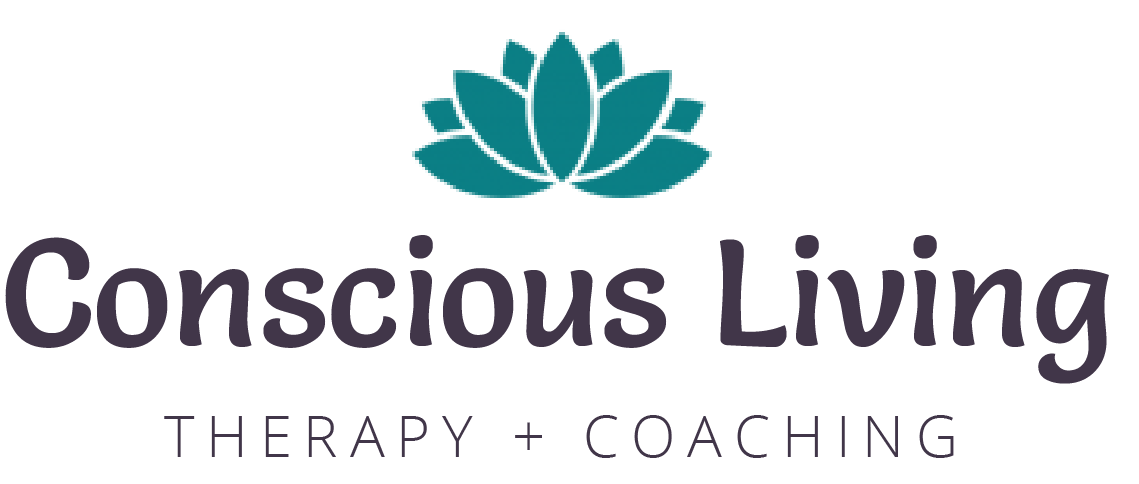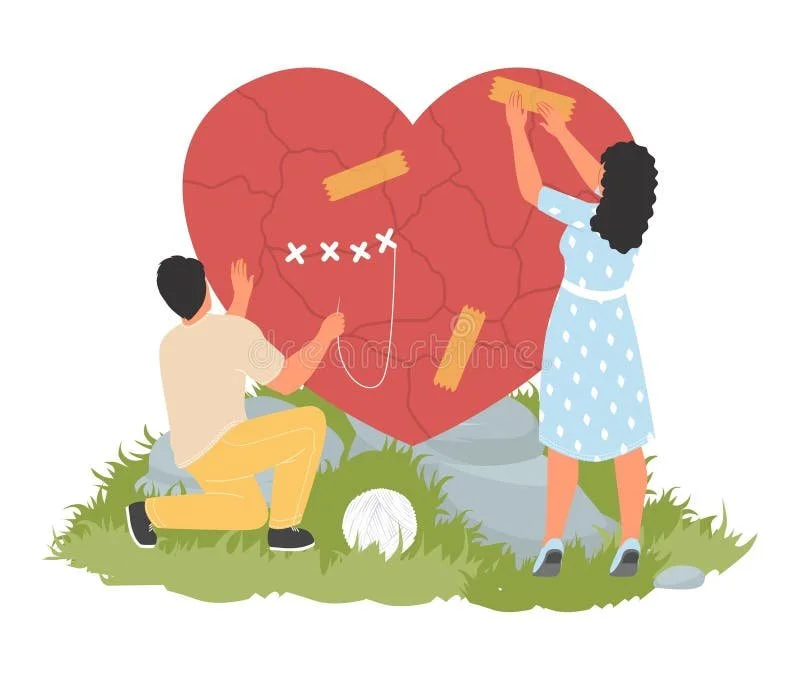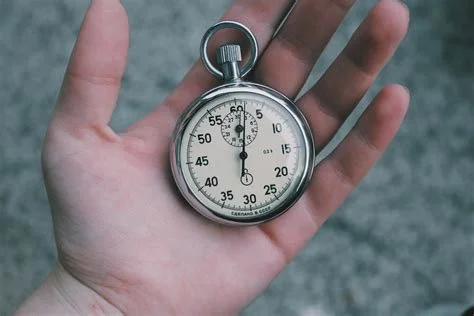How to manage conflict in a relationship & 15 Rules for fighting fair
“A conflict is like an SOS emerging from the recesses of your relationship … its purpose is to alert you that something needs attention.” — Judith Sherven, PhD, and James Sniechowski, PhD, Be Loved for Who You Really Are
Respectfully managed conflict is a green flag of healthy relationships. Seriously. I get a ‘red flag’ feel whenever I hear couples say they ‘never fight.’ Because the truth is, the strength of a relationship is not based on how well you get along, but more-so on how well you navigate conflict and repair the relationship after a rupture or disagreement.
Stick with me while we unpack how to manage relational conflict. We’ll dissect the do’s and don’ts of healthy arguing, learn how to ‘fight fair,’ and even explore some of the benefits of healthy conflict.
Let’s start with the basics…
Why does fighting fair matter?
Fighting fair matters because fighting is inevitable. And – when navigated respectfully – healthy. The Adult Chair framework gives us a strong foundation for analyzing the behind-the-scenes emotions of relational tension.
From the seat of the Adolescent Chair, fighting is… well, it’s the worst. When the Inner Child’s desire for love and acceptance arises, the Inner Adolescent will often take over and assume control in order to protect the Child from potential rejection. But the Inner Adolescent doesn’t have access to the adult tools necessary for navigating conflict in a healthy way.
In other words, the Inner adolescent doesn’t know how to ‘fight fair’ – so they rely on impulsivity and emotional reactivity. Driven by their ‘do it now’ mentality, their overwhelming sense of urgency, and their intense fear of being misunderstood, the Inner Adolescent navigates conflict the only way they know how utilizing the usual defense mechanisms – rage, blaming, overreactions, overt control, codependency, people pleasing, avoidance, etc.
This is why NOT fighting fair can feel so catastrophic – because it can trigger our Inner Adolescent. Once the Inner Adolescent takes the driver’s seat, the situation often gets worse. This is also why so many adults become conflict averse and avoid conflict just to ‘keep the peace.’ But the avoidance of conflict is not the same as peace.
If someone in the relationship is suppressing their feelings to ‘keep the peace,’ what they’re actually doing is avoiding authenticity. That type of withholding doesn’t produce real peace. It doesn’t build a healthy, happy relationship. It fuels resentment and creates further disconnection.
Welcoming the Healthy Adult into the ring
When our Healthy Adult shows up to the fight, the confrontation becomes a conversation.
Unlike the Inner Adolescent who relies on fear-based assumptions and storytelling, the Healthy Adult lives in the realm of fact and truth – which means they’re led by compassionate curiosity. The Healthy Adult’s search for truth compels them to lean in and be patient as they go on a non-judgmental, fact-finding mission. And they’re willing to face whatever they find, even if that means hearing tough truths or taking responsibility.
Healthy Adults know fighting fair is the only way to get to the heart of the issue – a place so authentic and grounded that even a heated disagreement doesn’t threaten the relational bond. The Healthy Adult knows how to access the resolution our sensitive Inner Child needs to exhale and feel protected. And the Healthy Adults knows how to fight in such a way that the Inner Adolescent can take a step back and put down their armor.
Benefits of healthy conflict – because it’s going to happen
No matter how much you and your partner have in common, the fact is you are completely different people with different life experiences. You’re not going to agree on everything. And that’s ok. Healthy conflict can benefit your relationship in many ways. Namely, by…
1.) Lessening relational fear:
Neither of you are afraid to be honest. Together, you courageously navigate uncomfortable or even painful truths. And that leads to…
2.) Improving emotional intimacy:
Couples who fight fairly with mutual respect and honest dialogue deepen emotional intimacy. Why? Because fighting fair involves creating a safe space for even the most difficult feelings to be seen, heard, respected, and held.
3.) Strengthening trust
Destructive arguing and conflict avoidance both erode trust. But healthy conflict fuels mutual understanding and meaningful connection and shows you can trust your partner even in tense moments.
4.) Greater relational resilience:
Unhealthy conflict/ruptures can make relationships feel fragile. But couples who’ve learned the art of healthy rebounding after a fight are confident. They’ve proven to themselves they can overcome disagreements and disappointment without losing the other.
Rules of fighting fair – Do’s & Don’ts
If you’re conflict averse, you’re not alone. Most people find comfort in agreement, because for many children and adolescents, disagreement meant danger. Conflict meant criticism. And criticism meant we weren’t accepted. Our younger selves needed love, acceptance, and safety – and disagreement and conflict threatened those early survival needs.
As healthy adults, we now have the power to allow our younger selves to rest easy while we courageously step in, lean in, and engage in a fair fight. When we commit to a fair fight, mutual agreement may not happen, but a respectful resolution becomes inevitable. As you navigate adult disagreements, here are 15 rules for healthy conflict:
8.) Do choose an intention for the conversation.
Don’t spring a fight on your partner. Healthy conflict has a clear set up, and the goal of the argument is clearly defined.
9.) Do ensure the timing/emotional state is healthy.
Timing matters. At the end of a tough workday may not be the best time for a tense discussion.
10.) Do use “I” statements.
Use feeling words and be specific. Avoid absolutes and words like never and always. Include the reason why. Clearly articulate your needs and be open to a conversation. Your request may require additional dialogue and/or compromise.
IE: I feel ____ when ____ because _____. Next time, please…
11.) Do take ownership and, if appropriate, apologize when needed.
Healthy relationships involve taking responsibility and accountability
Example:
“I understand how_____. I’m sorry for _[be specific]_. Will you please forgive me?”
“How can I help make things right?”
12.) Do seek to understand, not defend.
Before responding, summarize your partner’s feelings back to them to ensure clarity. Reminder: it’s not you vs. them. It’s US vs. the problem.
13.) Do recognize when your fighting style is unhealthy.
Know when to take a timeout. See below for timeout guidelines. Decide in advance what constitutes a time-out and then set a return time between 20 minutes and 24 hours. The goal of a timeout is to calm down. Not turn the fight into a prolonged silent battle.
1.) Don’t stonewall.
This means no silent treatment. No “Fine.” or “Whatever.” Avoid shutting down, walking away, or withdrawing using dismissive body language.
2.) Don’t call names.
And, yes, “You’re being such ___!” does constitute as name calling,
3.) Don’t play victim or exaggerate problems.
Example: “You always do this to me!”
Read more: Release victim mentality and welcome a growth mindset
4.) Don’t deflect.
Deflecting redirects the blame and/or the responsibility of an action on the other person.
Examples:
“I only did that because you…”
“That’s your fault!”
“What about when you…?”
5.) Don’t threaten to leave.
Never use threat of divorce or separation to intimidate, manipulate, or control your partner.
6.) Don’t bring up the past.
Address the isolated instance. If the occurrence is part of a pattern, then the ‘problem pattern’ needs to be a separate discussion.
7.) Don’t involve other people.
Healthy conflict needs boundaries. No running to your best friend, parent, social media, etc. If someone isn’t an immediate part of the problem or the solution, then keep things private.
14.) Do come up with an agreed-upon plan for repair.
Healthy couples have a healthy conflict strategy in place before a fight even begins, and every plan requires follow-through. While every couple’s repair plan is different here are a few suggestions:
Take some individual time to cool off and self-care.
Do a neutral activity together. Go on a walk, watch a show, prepare a meal, etc.
Offer a hug, an apology, or an opportunity to move past the situation.
15.) Agree to disagree if needed.
Unless a core value is at risk, Healthy Adults agree to disagree.
When to call a timeout
Sometimes calling a timeout is appropriate, such as…
When someone is emotionally flooded – They’re so upset or provoked that respectful discourse is too difficult.
When the Inner Adolescent is triggered/activated – Are you fighting with your partner? Or their traumatize 12-year-old self?
Read more: Understanding emotional immaturity in adults
When you need time to think and reflect before responding – In heated moments, you may not be able to process your emotions in real-time. That’s ok. Healthy Adults create space for healthy emotional processing.
How to call a timeout
1.) Identify – Detect when a timeout is needed. Name calling, shouting, interrupting, deflecting, stonewalling, are all signs a timeout may be needed
2.) Communicate – Advocate for the need of the moment.
“I’m too upset to have this conversation right now. I need to calm down before responding.”
“I’m feeling triggered. I need to take a time out to regulate my emotions.”
“Did I say or do something to trigger you? Do you need a timeout to regulate or process?”
3.) Follow-up – According to the Gottman Institute it takes at least 20 minutes for the nervous system to down-regulate. When a timeout is called the timeout should not last longer than 24 hours. Remember, healthy timeouts are not ‘open-ended.’ Part of a timeout is committing to returning within an agreed-upon time frame to resolve the issue.
In closing…
Relationships are hard. They can challenge every part of who we are – even the wounded parts. But friend, I do believe relationships are worth it. If you are interested in improving the way you navigate conflict or exploring why conflict is so triggering to you, professional support from an attachment-based, trauma-informed therapist/coach can help. Please contact me… I’d be honored to help you show up for yourself as the Healthy Adult you were always meant to be.
Read more: A message of hope for those in the messy middle of transformation
Let’s Connect
Hi there! I’m Jenny, a licensed Holistic Therapist, and Certified Adult Chair® Master Coach.
I combine both therapy and coaching methodologies to provide my clients with a holistic perspective and the techniques they need to flourish. Rediscovering who you were always meant to be is an act of courage, and radical self- love can turn unconscious paralysis into conscious growth. Learn more about me here.





